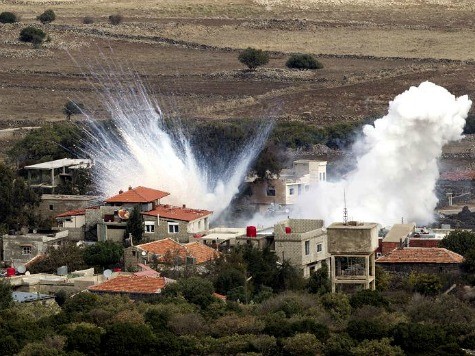Israel has been pounded by well over 100 rockets from Gaza in just the past 24 hours. Air raid sirens have gone off even in Jerusalem and Tel Aviv. What is Hamas, which controls the Gaza Strip, up to? How should Israel respond? There is a strong division of opinion even within the Israeli government.
It appears that Hamas is attempting to draw Israel into a major Gaza offensive. In terms of Israel’s response, some government ministers and members of Prime Minister Netanyahu’s coalition want all of Gaza reconquered; others advocate for more modest and easily attainable objectives.
An analysis in The Times of Israel suggests several factors and scenarios in play. Hamas, which had not taken credit for any rocket attacks in nearly two years, suddenly is on the attack, but with no clear objective other than to goad Israel into action. Its motivation may be the fanning of flames of the recent unrest in Israel and the West Bank, or a need to stave off its even-more militant rivals, Palestinian Islamic Jihad and the assorted Salafi organizations, which have been whittling away at Hamas’s popular support. And it may just be that raining death and destruction upon Israel is Hamas’s reason for existence.
Israel has just called up 40,000 reservists, indicating that there will be at least a credible threat of a ground attack. But if Hamas is not deterred by the massing of troops on its border or dozens of Israeli airstrikes, then Israel will be left with little choice but to initiate serious military action. And such an action in Gaza would likely be bloody.
Foreign Minister Avigdor Liberman has called for reassertion of Israeli control over the Gaza Strip. He is believed to have the support of Economy Minister Naftali Bennett for such a move. Others in the government are understandably squeamish about re-conquest of Gaza, and control of the 1.5 million Palestinians that come with it.
Several respected analysts have weighed in with their opinions.
Brig. Gen. (res) Udi Dekel and Dr. Kobi Michael of the Institute for National Security Studies wrote recently how re-conquest as an objective would require a massive reserves call-up; a lengthy operation in the Gaza Strip, including operations by ground troops; and a prolonged toll on the Israeli civilian population, which would be under Gaza rocket fire for weeks if not months. The researchers put the toll on the economy of such an action at 15 billion shekels ($4.4 billion), and leave Israel in control of a hostile population.
Therefore, Dekel and Michael argued, “it is best to have a modest and attainable strategic objective.”
Maj. Gen. (ret) Amos Yadlin, the head of the INSS and former commander of Israel’s military intelligence directorate, called the notion of a re-occupation “a strategic mistake.”
Writing on his Facebook page on Sunday he advocated instead for an offensive that targets the military wing of Hamas, the organization’s leaders, its firepower, and its weapons-production capabilities.
Such an operation, Yadlin wrote, which would combine aerial fire power and limited ground actions in order to secure strategic locations, “might include damage to the fabric of life in Israel, the Israeli economy, and even fatalities. But it is necessary.”
If forced into war, the army will likely begin with a coordinated strike, probably against Hamas’s long-range rockets, which are less mobile than its shorter-range arsenal. Hamas leaders will be targeted, but most are already in hiding, fearing Israeli assassination.
But as former Mossad head Efraim Halevy recently said, one knows where a war starts, but never where it ends. “The fortunes of war are not pre-destined.”

COMMENTS
Please let us know if you're having issues with commenting.